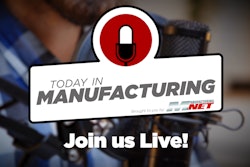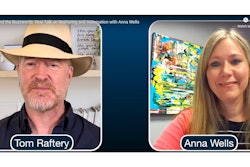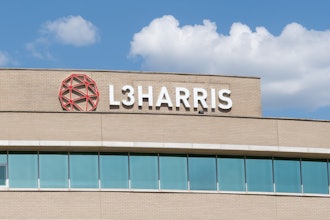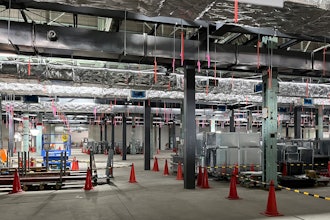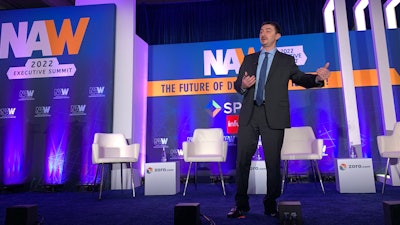
One of the themes I went into NAW’s 2022 Executive Summit in late January was hiring and talent retention. In the age of “The Great Recession,” how must distributors change their tried-and-true recruiting methods and ways of keeping their employees from jumping ship?
While the impacts of remote working, salary cuts and layoffs enacted during the worst of the pandemic have impacted various industries in different ways, distribution has seen many challenges since the start of 2021 in terms of labor. This past August, I discussed commentary from Grainger and Fastenal’s CEOs on the difficulties seen in recruiting new staff, especially in the warehouse. And while market conditions seem to have improved — the warehousing sector added 13,400 jobs in January and leads all U.S. industries in job growth since February 2020 — the game has changed. Maybe forever.
READ MORE: NAW Summit Takeaways: Using Data and Removing 'Blockers' to Transform Your Sales Force (Feb. 9)
Several of the speaking tracks at the NAW Summit touched on how the days of expecting a flurry of candidates applying for most distribution job openings and for candidates to accept offers as-is may be — at least temporarily — over. Even before COVID arrived, the greater U.S. workforce had gained momentum in its push for higher wages (including to raise the federal minimum wage that was last increased in 2019), better flexibility in hours and the ability to work remotely.
As we’ve all seen, the pandemic has only accelerated all of this. Workers have seen that not only is remote work possible for most non-warehousing jobs in distribution, but it can be used with equal effectiveness as when workers are in the office.
Candidates arguably have more leverage today than ever when it comes to negotiating when and how they work, and distributors must respond accordingly.
Area of Investment
 Miller Resource Group's Alex Chausovsky gives a "Winning the War for Talent" presentation during NAW's Executive Summit on Jan. 26 in Washington D.C.Mike Hockett/Industrial Distribution
Miller Resource Group's Alex Chausovsky gives a "Winning the War for Talent" presentation during NAW's Executive Summit on Jan. 26 in Washington D.C.Mike Hockett/Industrial Distribution
The rise of social media and numerous job board websites has helped distributors with recruiting, but those are just limited digital tools. Chausovsky stressed that recruiting should be viewed as a tangible part of the business, like budgeting for other operating costs.
“You have to invest in developing a talent strategy,” he said. “When you’re doing your annual planning, you have to dedicate part of that toward talent planning.”
Chausovsky, whose company provides recruiting for hard-to-find personnel in the process control industry, said his firm’s research found that most companies — about 64 percent — say they don’t have a talent strategy, but “are working on one.” Only 27 percent say they have such a strategy, he said, while 9 percent are in the worst bucket, saying “we’re fine without one.”
When market conditions are good and the industry’s employment levels are steady, it’s easy to say whatever recruiting process you have is working just fine. But it’s not until a labor crisis that such a statement is put to the test.
Broad-Based Approaches Fail
Chausovsky emphasized that when strategizing such a plan, a one-size-fits-all approach doesn’t cut it, and utilizing data can work wonders here.
“Each candidate is different, yet most HR teams use the same hiring process/template for all candidates,” he said. “Still too much, ‘we’ve always done it this way,’ when it comes to salary/compensation. You have to have useful data to offer the actual competitive rate. Location/market, experience, education, industry — rhe kind of information you’re using has to be part of the evolution of your talent process.”
The Right Candidates
When it comes to evaluating candidates, Chausovsky said that if your hiring process takes more than two interviews, you’re likely missing out on top talent.
“If it takes more than two, ask yourself why,” he explained. “I’m not saying you shouldn’t vet these people, but you need to understand the candidate better.”
Chausovsky explained how, as business leaders, distribution executives/managers want passive candidates — those who are currently employed, not searching but ‘casually browsing’ and likely wouldn’t apply unless personally engaged) rather than active candidates — those who are unemployed, proactively searching and actively applying to jobs. It typically takes fewer total passive candidates interviews (about four, per MSG data) to find the right hire than with active candidates (about 11).
 A slide from Alex Chausovsky "Winning the War for Talent" presentation.Mike Hockett/Industrial Distribution
A slide from Alex Chausovsky "Winning the War for Talent" presentation.Mike Hockett/Industrial Distribution
People Quit Bad Managers
Lastly, Chauvosky discussed the role of culture in recruiting and retaining, emphasizing the adage, “people don’t quite jobs, they quit managers.” He stressed the importance of the relationship between employees and their immediate manager/supervisor and that a bad relationship is very hard to come back from.
This is why management training is so important. Managers who aren’t trained to be effective are a liability in the company and may be driving away good talent.
“Culture is like hygiene: if it’s good, it’s not really talked about. If it’s bad, everyone knows about it,” Chauvosky quipped.
 A slide from Alex Chausovsky "Winning the War for Talent" presentation.Mike Hockett/Industrial Distribution
A slide from Alex Chausovsky "Winning the War for Talent" presentation.Mike Hockett/Industrial Distribution




